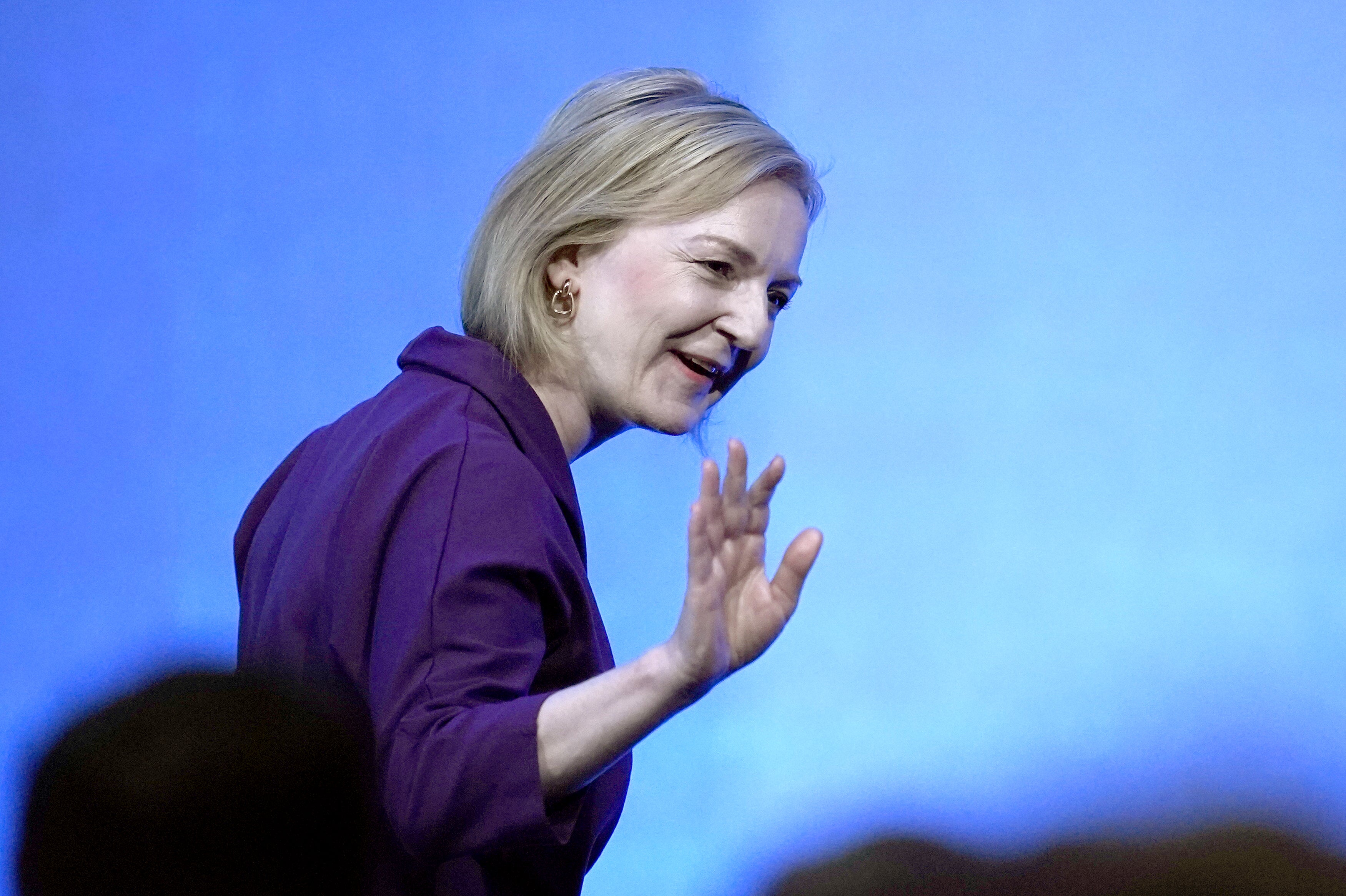Liz Truss should use the party conference to distract from a policy retreat
Editorial: The prime minister would be wise to prepare behind the scenes to adjust her cruel, unfair and unwise policies

If the prime minister has any instinct for survival at all – something of which we cannot yet be sure – she will use the drama of her party conference in Birmingham over the next few days as cover to allow her to prepare a stealthy retreat in Westminster.
She and her shrinking band of loyal ministers can use the annual gathering of Conservative representatives to try to convey a message of defiance, confidence and bravery. No doubt the phrase “You turn if you want to; the lady’s not for turning” will be heard from the platform, possibly even in Liz Truss’s own speech on Wednesday. But the important business will be to prepare behind the scenes for a number of pragmatic adjustments to the new government’s policies in the coming weeks.
When MPs reassemble in the House of Commons on 11 October, Ms Truss is going to have to face the reality that getting her policies through parliament will not be straightforward. Her notional working majority of 71 is in effect a hung parliament, in which 138 MPs (at the last count) are members of the Rishi Sunak Party.
Ms Truss, Wendy Morton, her chief whip, and Penny Mordaunt, her leader of the Commons, will have to negotiate with the Rishi Sunak Party to get their business through.
The first item on the agenda for these negotiations is the interim report of the Office for Budget Responsibility, which Ms Truss and Kwasi Kwarteng, her chancellor, have reluctantly agreed can be delivered to the Treasury on Friday. Mr Kwarteng wants to keep it secret until his statement on his medium-term fiscal plan on 23 November, but Labour will table a motion to force its publication earlier. Labour is right; Mr Kwarteng is wrong; and the government would be well advised to concede the point quietly rather than be defeated in the division lobbies.
Later, probably in the new year, there will be votes on the measures announced in Mr Kwarteng’s mini-Budget, the most controversial of which is the cut in the top rate of income tax. Again, if that is going to be defeated, it would be better for the government to announce its postponement on its own terms. Ms Truss can consider making the vote a question of confidence, threatening a general election if she loses, but that would be unwise in the current opinion-poll climate, and for as long as there is a possibility that Mr Sunak, as an emergency alternative Conservative leader, could make a rival claim to be able to command a majority in the Commons. (Since the repeal of the Fixed-term Parliaments Act, we have returned to the position in which the King need not grant an election if someone else could carry on the government’s business.)
To keep up to speed with all the latest opinions and comment, sign up to our free weekly Voices Dispatches newsletter by clicking here
If Ms Truss is foolish enough to persist in trying to cut the welfare budget, there would have to be votes on that too. Conservative MPs are already making it clear this weekend that they will not vote to cut benefits for the poorest while tax cuts disproportionately favour the better off, which will still be the case even if the top rate cut is postponed.
Let Ms Truss proclaim from the platform in Birmingham that she is right and everyone else is wrong, but she would be well advised to prepare to quietly modify her most unpopular measures before they make contact with parliamentary reality.
Far be it for The Independent to advise Ms Truss how best to keep her hold on No 10, but any retreat from her cruel, unfair and unwise policies would be good for the country. And such a retreat is what Margaret Thatcher, who always tempered her strident rhetoric with a canny flexibility away from the limelight, would have wanted.



Join our commenting forum
Join thought-provoking conversations, follow other Independent readers and see their replies
Comments